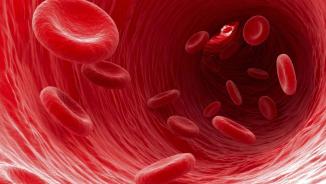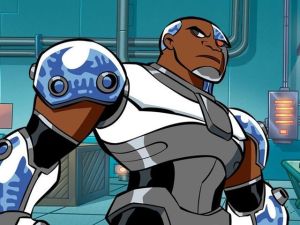Introduction
With the growing technology and the human ability and willingness to move with the future. We are coming across technology that would advance oneself. Such as robotic legs to be able to jump higher or run faster . Smart chips to make an individual smarter. The world is getting bigger and the ethical issues it might bring will not overwelm the ability for humans wanting too advance oneself.
Background
Human Enhancements are any technology or natural needs that will cause a human to overcome any restrictions. To change human characteristics that will not fall short of the human imagination. Goals is to improve oneself image or to enhance one abilities with these enhancements. People may rely on artificial limbs rather than their own limbs due to limitation were their natural limbs can not achieve
Literature Review
The burning concern using human enhancement, will it be used to heal or make us superhuman and remove who we are innately born to be? The literature that is being researched is focusing on the positive and negative effects on human enhancement and if it is ethical. In the research, discusses the impact of human enhancements in relation to healing, social impact, and the virtual world, these will be the main focus points. Come to know that human enhancement is worth the risk. Still with all the research we are still unsure of the true outcome of human enhancement because of the lack of technologies and lack of knowledge on how we truly react to these enhancements.
HEALING
Synthetic blood is one human enhancement that will help patients heal. For example, adding more oxygen to the blood helping people become faster, have more energy , and helps push the blood through the body. The blood will be engineered to clot faster which will keep people from bleeding to death. Also can be use to monitor the heart arteries to prevent from getting a heart attack. According to Boslaugh, S.(2008) article , talks about blood-derived cells and how it use in stem cell research. Main goal is to find out about tissue repair. In the same article Dr. Mark Saltzman, Ph.D, the chairman of medical engineering at Yale, focus on inserting synthetic material in the body to improve cell function. (Boslaugh, S.2008)

In The Center for Cultural and Pastoral Research (2015) article it discusses the uncertainty of medicine . The extremely high cost and regulatory demand from the government. Which many changes have brought on by the Affordable Care Act. Even with the great results with the advances in medicine such as biomedical and technology in diagnosing diseases . Which leaves medicine to be question, if it’s ethical or not. The cost is too great for the future of medicine .
SOCIAL IMPACT
If we as a society embrace human enhancement we may lose more than we gain. It can cause a new social class, which would be higher than everyone else. Making a wider gap between the haves and have-nots, due to the cost of the enhancements. People can use the enhancement as leverage over people who do not. According to Miah (2016), in his research, discusses downfalls to become superhuman like. If we improve our own intelligence then should we improve the intelligence of animals? He also goes into gene selection, to be able to eliminate genes that we might need in the next hundred of

years. The ability to live longer two hundred, three hundred years with all the stress and problems that we deal with now in our regular life span is not worth it (Miah 2016). In Stu Robarts (2014) article Steve Fuller, says that we should make sure that these enhancement are use for the people who really need it before we help people who would want it for personal profits. Heller and Peterson (2016) in their article, bring up the concerns of people feeling they have to enhance, due to the pressures from society. For example, would you have to be able to compete for a job due to their brain enhanced processing chip or have to compete with sports with player getting steroids to push their humanly limits. Brings up the question, Do we make different categories for the enhance and non-enhance? How about not “playing God”, to change what life has given us.
VIRTUAL WORLD
Kurzweil (2014) says on ted talk to get ready for hybrid thinking. Using enhancement such as nano technology, very small computers, inserted through your bloodstream that end up in your brain, will draw information from the cloud. It is like having google in your brain.

This technology can be possible in the next twenty-five years (Kurzweil 2014). Also tell us that we will have more machine base enhancements which will disconnect us from each other and the real world (Kurzweil 2014). Scholars will agree that humans will be connect to the virtual world but the use of it will help us in our daily lives not to be enslaved to the virtual world.
CONCLUSION
Human enhancement comes in all different kinds of forms and has negative and positive affects. Human enhancement will heal and make humans healthier and in some aspects we will become superhuman. The intent is to make us better than we are today. Like other things in society people will use that to discriminate for personal profit or hurt their enemies. We must use the enhancement for people of need not as a luxury. Based on how far we have come in the past fifty years at a fast rate, assumptions are made on how far we will get the next fifty years. The act of human enhancement is inevitable, because of the people who need it healing purposes and just the will to want to evolve into something greater.
REFERENCES
Boslaugh, S. (2008). Yale University. In C. Svendsen & A. Ebert, Encyclopedia of stem cell research. Thousand Oaks, CA: Sage Publications. Retrieved from http://ezproxy.cpcc.edu/login?qurl=http%3A%2F%2Fsearch.credoreference.com%2Fcontent%2Fentry%2Fsagestemcell%2Fyale_university%2F0\
Heller, J., & Peterson, C. (n.d.). Human Enhancement and Nanotechnology. Retrieved from https://www.foresight.org/policy/brief2.html
Healing or Human Enhancement? The Future of Medicine | Events | John Paul II Institute. (n.d.). Retrieved from https://www.johnpaulii.edu/events/view/healing-or-human-enhancement-the-future-of-medicine
Kurzweil, R. (n.d.). Get ready for hybrid thinking [Video blog post]. Retrieved from https://www.youtube.com/watch?v=PVXQUItNEDQ
Miah, A. (2016). The Ethics of Human Enhancement. Retrieved from, https://www.technologyreview.com/s/602342/the-ethics-of-human-enhancement/
Roberts, S. (n.d.). Will superhuman powers give us superhuman problems? Retrieved from http://newatlas.com/human-enhancement-issues/31743/
Opposing Viewpoints
Human enhancement has always face the chopping block for either ethical or moral issues . Human Enhancement is part of humans evolution and the risk will be worth it. Agar (2010) says with radical enhancement will be the end to humanity itself. Radical enhancement is when the human attribute and abilities that will push the boundaries of humankind. Will lead to a civil with the advance and non-advance. Radical enhancement will make a new kind of species of hierarchy.
Cho (2013) a transhumanism who believes in pro-choice in human enhancement, the choice to enhance oneself should have every right to do so. To pick traits within our child would be any different from picking our spouse to get a certain type of traits in our child. Kimel (2016) views human enhancements not as a way to make a elite human race but to rescue human from suffering and reach places we never thought was possible. To give humans a chance to break away from postmodern malaise.
“If we limit ourselves … we will rob ourselves and our descendants of some of the most exciting opportunities that the biological revolution presents.” Caplan (2008) see it as only human nature. Our ability to adapt to our environment and evolved. He point out that if you go get laser eye surgery and come out with better visions are you look down upon, because you didn’t earn that eye sight or you didn’t train your eyes to see that well. Any inequity that affects obtaining different abilities to enjoy and pursue life should be look at. The problem is not the biology of human enhancement but the inequity (Caplan 2008).
Mckibben (2006) argues that human imperfections is what makes us humans. Our will and what fate gives us will be taken away and leave us as semi-robots. We must find our meaning in our limitations as humans because yes becoming a robot with be amazing and cool but we will not be human (Mckibben 2006). He goes on to say if we want to stay as humans we must accept our imperfections. We have steadily been making our societies more humane and more caring for others and their differences. We do not need to bow down to what technologies demand of us.
Appleyard (2008) argues that we cannot be certain human enhancement will make humans better but just more human. Technology is so advance that we will give in and become to advance yourself and even your unborn child. Technology will keep going on no matter what problems we have with it. With human enhancement they will be no better than us but equal (Appleyard 2008)
Works Cited
Agar, N. (2013). Radical Life Extension Would Make People Less Human. In T. Thompson (Ed.), At Issue. Extending the Human Lifespan. Detroit: Greenhaven Press. (Reprinted from What Is Radical Enhancement?, Humanity’s End: Why We Should Reject Radical Enhancement, Vol. 1, 2010, MIT Press: Boston) Retrieved from http://ezproxy.cpcc.edu/login?url=http://ic.galegroup.com/ic/ovic/ViewpointsDetailsPage/ViewpointsDetailsWindow?disableHighlighting=false&displayGroupName=Viewpoints&currPage=&scanId=&query=&prodId=OVIC&search_within_results=&p=OVIC&mode=view&catId=&limiter=&display-query=&displayGroups=&contentModules=&action=e&sortBy=&documentId=GALE%7CEJ3010880210&windowstate=normal&activityType=&failOverType=&commentary=&source=Bookmark&u=centralp&jsid=f118c246acf57b7fc230ce171aa5c036
Appleyard, B. (2008). The Impact of Human Enhancement Is Uncertain. In L. Gerdes (Ed.), Opposing Viewpoints. Medicine. Detroit: Greenhaven Press. (Reprinted from Spectator, 2006, March 4, 28) Retrieved from http://ezproxy.cpcc.edu/login?url=http://ic.galegroup.com/ic/ovic/ViewpointsDetailsPage/ViewpointsDetailsWindow?disableHighlighting=false&displayGroupName=Viewpoints&currPage=&scanId=&query=&prodId=OVIC&search_within_results=&p=OVIC&mode=view&catId=&limiter=&display-query=&displayGroups=&contentModules=&action=e&sortBy=&documentId=GALE%7CEJ3010302257&windowstate=normal&activityType=&failOverType=&commentary=&source=Bookmark&u=centralp&jsid=8fe9863553afec18aec1cf0214cbde96
Cho, H. (2013). Enhancing Humans Through Science Is Beneficial. In C. F. Naff (Ed.), At Issue. Designer Babies. Detroit: Greenhaven Press. (Reprinted from The Ethics of Designer Babiesand and The Ethics of Transhumanism,, http://www.ethicsofthefuture.com, 2011, May 30) Retrieved from http://ezproxy.cpcc.edu/login?url=http://ic.galegroup.com/ic/ovic/ViewpointsDetailsPage/ViewpointsDetailsWindow?disableHighlighting=false&displayGroupName=Viewpoints&currPage=&scanId=&query=&prodId=OVIC&search_within_results=&p=OVIC&mode=view&catId=&limiter=&display-query=&displayGroups=&contentModules=&action=e&sortBy=&documentId=GALE%7CEJ3010850209&windowstate=normal&activityType=&failOverType=&commentary=&source=Bookmark&u=centralp&jsid=4b1983274f1ba5210200b32105b537ea
Caplan, A. (2008). Biological and Genetic Human Enhancement Will Improve Human Life. In L. Gerdes (Ed.), Opposing Viewpoints. Medicine. Detroit: Greenhaven Press. (Reprinted from Better Humans? The Politics of Human Enhancement and Life Extension, pp. 31-39, 2006, London: Demos) Retrieved from http://ezproxy.cpcc.edu/login?url=http://ic.galegroup.com/ic/ovic/ViewpointsDetailsPage/ViewpointsDetailsWindow?disableHighlighting=false&displayGroupName=Viewpoints&currPage=&scanId=&query=&prodId=OVIC&search_within_results=&p=OVIC&mode=view&catId=&limiter=&display-query=&displayGroups=&contentModules=&action=e&sortBy=&documentId=GALE%7CEJ3010302256&windowstate=normal&activityType=&failOverType=&commentary=&source=Bookmark&u=centralp&jsid=7f8b054a6cac911530658e94f3b1270
Kimel, D. V. (2016, May 24). In defense of transhumanism. Washington Post. Retrieved from http://ezproxy.cpcc.edu/login?url=http://ic.galegroup.com/ic/ovic/NewsDetailsPage/NewsDetailsWindow?disableHighlighting=false&displayGroupName=News&currPage=&scanId=&query=&prodId=OVIC&search_within_results=&p=OVIC&mode=view&catId=&limiter=&display-query=&displayGroups=&contentModules=&action=e&sortBy=&documentId=GALE%7CA453220617&windowstate=normal&activityType=&failOverType=&commentary=&source=Bookmark&u=centralp&jsid=c70e5ce956b130a827c2fed47e98510c
McKibben, B. (2006). Human Genetic Enhancement Is Unnecessary. In L. I. Gerdes (Ed.), Opposing Viewpoints. Humanity’s Future. Detroit: Greenhaven Press. (Reprinted from Keep Us Human: If We’re Truly Smart, We’ll Refuse to Foolishly Tamper with Our DNA, Los Angeles Times, 2003, April 14) Retrieved from http://ezproxy.cpcc.edu/login?url=http://ic.galegroup.com/ic/ovic/ViewpointsDetailsPage/ViewpointsDetailsWindow?disableHighlighting=false&displayGroupName=Viewpoints&currPage=&scanId=&query=&prodId=OVIC&search_within_results=&p=OVIC&mode=view&catId=&limiter=&display-query=&displayGroups=&contentModules=&action=e&sortBy=&documentId=GALE%7CEJ3010447209&windowstate=normal&activityType=&failOverType=&commentary=&source=Bookmark&u=centralp&jsid=ffc9052462ef788eeef99f850cfc5779
